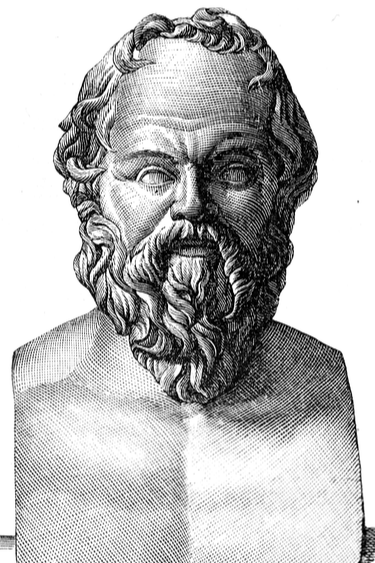Socrates
Biography
Socrates stands as one of the greatest figures in the history of philosophy. His ideas laid the foundation for Western thought, influencing countless philosophers, including his famous students Plato and Aristotle. Though he left no written works, his teachings survive through the writings of others, especially Plato’s dialogues.
Early Life and Background
Socrates was born around 470 BCE in Athens, Greece. His father, Sophroniscus, was a sculptor, and his mother, Phaenarete, was a midwife. Little is known about his early education, but he is believed to have studied music, gymnastics, and literature, typical of an Athenian youth.
Before becoming known as a philosopher, Socrates worked as a stonemason and served as a soldier in several Athenian campaigns, where he was recognized for his bravery.
Philosophical Career and Teachings
Socrates never established a formal school or wrote books. Instead, he engaged in public discussions, questioning people from all walks of life—politicians, craftsmen, poets—to examine their beliefs and understanding of moral concepts such as justice, virtue, and truth.
His method of inquiry, known as the Socratic Method, involved asking a series of probing questions to stimulate critical thinking and expose contradictions in others’ reasoning.
This approach encouraged self-examination and the pursuit of wisdom through dialogue.
Socrates believed that true knowledge comes from within and that “the unexamined life is not worth living.” He emphasized moral integrity and the importance of knowing oneself as the highest form of wisdom.
Trial and Death
Socrates’ questioning nature and criticism of Athenian leaders made him unpopular among certain powerful figures. In 399 BCE, he was charged with impiety (disrespecting the gods) and corrupting the youth of Athens.
During his trial, Socrates remained steadfast, defending his philosophy and refusing to renounce his beliefs. He was ultimately sentenced to death by drinking a cup of poison hemlock. His calm acceptance of death became a lasting symbol of intellectual courage and moral conviction.
Legacy
Socrates’ influence endures through the works of his disciples, particularly Plato, who recorded many of his dialogues. His ideas gave rise to moral philosophy, logic, and the scientific method of inquiry.
Socrates transformed philosophy from a study of the natural world into a quest for ethical understanding and personal truth. His legacy continues to inspire thinkers, educators, and students worldwide, reminding humanity of the timeless value of questioning and self-knowledge.
Conclusion
Socrates’ life and teachings mark a turning point in human thought. Through his relentless pursuit of truth and wisdom, he taught that knowledge is not merely about facts but about understanding oneself and living a virtuous life. His spirit of inquiry remains the cornerstone of philosophy even today.
